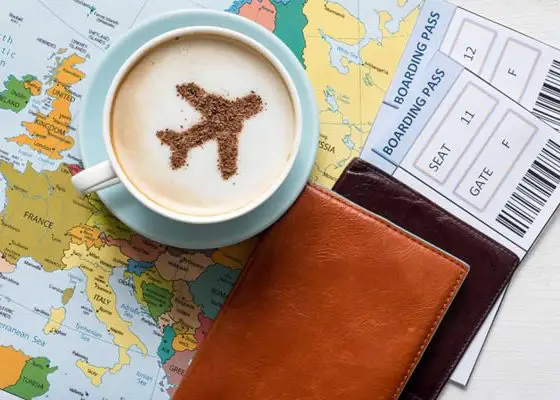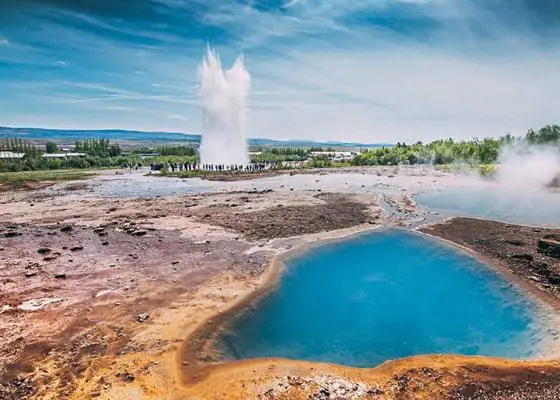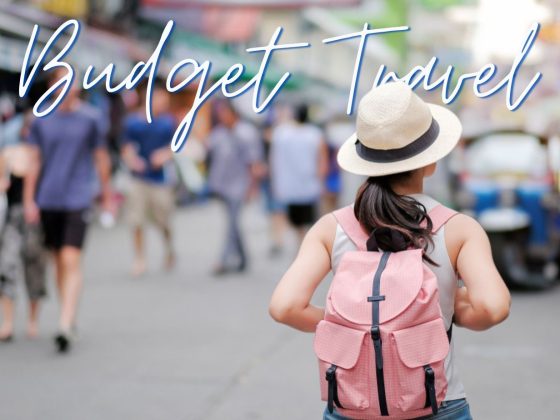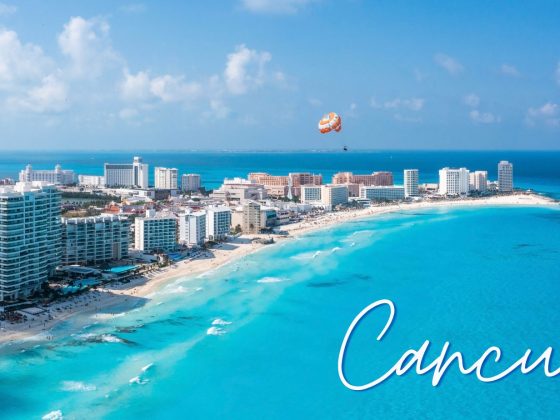Traveling is an adventure like no other, but it’s no secret that it often comes with its fair share of challenges. Whether you’re a seasoned globetrotter or planning your first big trip, having insider tips at your disposal can make all the difference. In this comprehensive guide, we’ll explore the secrets to ensuring a seamless and stress-free travel experience.
Travel Research and Planning
Start with a Clear Vision
To kickstart your travel plans, it’s crucial to have a clear vision of what you want to achieve on your journey. Ask yourself what kind of experience you’re seeking – is it a relaxing beach vacation, an adventurous trek through the mountains, or an exploration of vibrant cities?
Set a Budget and Stick to It
One of the fundamental aspects of travel planning is setting a budget. Determine how much you’re willing to spend, and more importantly, stick to it. This will help you avoid overspending and financial stress during your trip.
Choose the Right Time to Travel
Timing can significantly impact your travel experience. Consider factors such as weather, peak tourist seasons, and local festivals when deciding when to embark on your journey. Avoiding crowded periods can make your trip more enjoyable.
Select Your Destination Wisely
Picking the right destination is a crucial decision. Consider your interests, the type of experience you desire, and any travel restrictions or advisories in place. Research thoroughly to find a location that aligns with your preferences.
Gather Essential Documents and Permits
Ensure you have all the necessary travel documents, from passports and visas to permits for specific activities or destinations. Failing to have these in order can lead to major travel hiccups.
Invest in Travel Insurance
A smart traveler’s secret weapon is travel insurance. It can save you from unexpected expenses due to trip cancellations, medical emergencies, or lost luggage. Prioritize a comprehensive policy for peace of mind.
Packing Like a Pro
Create a Detailed Packing List
Start your packing process with a comprehensive list. Include clothing, toiletries, gadgets, travel documents, and any other essentials. This list will keep you organized and help you avoid overpacking.
Pack Light and Smart
Overpacking can be a traveler’s worst enemy. Stick to the essentials, versatile clothing, and items that serve multiple purposes. This not only saves you from lugging around heavy luggage but also allows space for souvenirs.
Choose the Right Luggage
Selecting the right luggage is essential. Consider the type of trip you’re taking – a backpack for adventure, a rolling suitcase for urban exploration, or a combination of both. Ensure your luggage suits your travel needs.
Don’t Forget the Essentials
Certain items are easily overlooked but are vital for your journey, such as power adapters, chargers, medication, and a reusable water bottle. Don’t leave home without these travel essentials.
Consider Weather Conditions
Be prepared for varying weather conditions at your destination. Check the local climate and pack accordingly. Layering is often a smart strategy, allowing you to adapt to changing weather throughout your trip.
Navigating Air Travel
Booking the Perfect Flight
When booking flights, consider factors like layovers, flight times, and airline reputation. Don’t always opt for the cheapest ticket; sometimes, convenience and comfort are worth the extra expense.
Understand Baggage Policies
Different airlines have varying baggage policies. Familiarize yourself with baggage allowances, fees for excess luggage, and restrictions on items such as liquids and electronics.
Mastering Airport Security
Navigating airport security efficiently can save you time and stress. Follow the rules – remove liquids and electronics from your bag, wear slip-on shoes for easy removal, and have your documents readily accessible.
Embrace Mobile Apps and E-Tickets
Utilize travel apps and e-tickets to streamline your airport experience. Mobile boarding passes, airline apps, and travel apps for itinerary management can be incredibly convenient.
Arriving Early for a Smooth Departure
Arriving at the airport well in advance of your flight is a wise practice. This extra time allows for unexpected delays, long security lines, and a stress-free start to your journey.
Stress-Free Accommodation
Prioritize Location and Reviews
When choosing accommodation, prioritize location and read reviews from previous guests. Being in a convenient location and staying in a well-reviewed establishment can greatly enhance your travel experience.
Opt for Booking Flexibility
In uncertain times, flexible booking policies are a blessing. Opt for accommodations that offer cancellation or rescheduling options in case your plans change.
Explore Alternative Lodging Options
Consider alternatives to traditional hotels, such as vacation rentals, hostels, or boutique guesthouses. These options can provide unique and memorable experiences.
Maximize Hotel Amenities
Take advantage of the amenities your accommodation offers, whether it’s a complimentary breakfast, spa services, or guided tours. These perks can enhance your overall experience.
Consider the Safety Factor
Safety is paramount when selecting accommodation. Research the neighborhood, check for security features, and read guest reviews regarding safety concerns.
Cultural Sensitivity
Research Local Customs and Etiquette
Respect and understanding of local customs and etiquette are essential. Research the cultural norms of your destination to avoid unintentional disrespect.
Dress Appropriately
Dress in a way that respects local norms, especially when visiting religious sites or conservative areas. Packing appropriate clothing will ensure you can comfortably experience all your destination has to offer.
Learn a Few Basic Phrases
Learning basic phrases in the local language shows respect and can help you navigate daily interactions. Phrases like “hello,” “thank you,” and “please” go a long way.
Respect Local Traditions
Participate in local traditions when appropriate. Whether it’s a local festival or a cultural ceremony, immersing yourself in these experiences can be incredibly rewarding.
Be Mindful of Photography
Before snapping away, be aware of local rules and customs regarding photography. Some places may have restrictions or consider it disrespectful to photograph certain subjects.
Local Cuisine Adventures
Be Open to Trying New Foods
One of the joys of travel is experiencing new cuisines. Be open to trying local dishes, even if they are unfamiliar. You might discover a new favorite!
Seek Local Recommendations
Ask locals for their favorite places to eat. They often know the best, most authentic eateries that might not be in guidebooks.
Watch for Food Safety
While exploring culinary delights, ensure the food you consume is prepared and stored safely to avoid foodborne illnesses. Check hygiene ratings and follow locals’ lead.
Dietary Restrictions and Allergies
If you have dietary restrictions or food allergies, communicate these clearly when dining out. Many restaurants can accommodate special dietary needs.
Savor the Street Food Experience
Don’t miss out on street food. It’s often not only delicious but also a great way to immerse yourself in the local food culture.
Transportation and Getting Around
Mastering Public Transport
Public transportation can be cost-effective and efficient. Learn about local bus and subway systems, trams, and ferries to get around like a local.
Renting a Car or Using Rideshares
In some destinations, renting a car or using rideshare services can be a convenient way to explore. Research local driving regulations and transportation apps.
Walk and Explore
Exploring on foot allows you to discover hidden gems and interact with locals. Wear comfortable shoes and embrace the joy of wandering.
Keep Important Contact Details
Always have essential contact numbers at hand, including local emergency services, your embassy or consulate, and your accommodation.
Currency Exchange and Payment Methods
Understand the local currency and exchange rates. Use ATMs for local currency and carry a backup credit card. Notify your bank of your travel plans to avoid card issues abroad.
Health and Wellness
Pack a Basic Medical Kit
A small medical kit with essentials like band-aids, pain relievers, and any necessary prescription medications can be a lifesaver.
Stay Hydrated and Eat Well
Maintain your well-being by drinking enough water and consuming a balanced diet. Food and water safety are key in preventing illnesses.
Get Enough Sleep
Adequate rest is crucial for enjoying your travels. Combat jet lag and time zone changes with good sleep practices.
Protect Against Insect-Borne Diseases
In regions with mosquito-borne diseases, use insect repellent and wear appropriate clothing to reduce the risk of illness.
Health Insurance and Vaccinations
Ensure you have comprehensive health insurance for your trip. Check if any vaccinations or preventive medications are recommended for your destination.
Staying Connected
Obtain a Local SIM Card
Getting a local SIM card can save you on international roaming charges and keep you connected with local data and calls.
Use Offline Maps and Translation Apps
Offline maps and translation apps can be invaluable for navigating and communicating in foreign countries, especially when you have limited data access.
Keep Family and Friends Informed
Share your itinerary with friends and family. In case of emergencies, they’ll know where you are and how to reach you.
Secure Your Digital Devices
Protect your digital devices from theft and cyber threats. Use strong passwords, enable remote tracking, and be cautious about public Wi-Fi networks.
Wi-Fi and Data Usage Tips
When using public Wi-Fi, use a virtual private network (VPN) to protect your data. Keep an eye on your data usage to avoid unexpected charges.
Traveling Solo or in a Group
Benefits of Solo Travel
Solo travel offers independence, self-discovery, and the opportunity to set your own pace. It’s a chance to step out of your comfort zone and grow as an individual.
Group Travel Advantages
Traveling with a group can provide a sense of security, shared experiences, and the opportunity to make new friends from diverse backgrounds.
Finding Travel Companions
If you prefer not to travel alone but don’t have a ready-made group, consider online forums, travel meetups, or apps that connect travelers.
Tips for Safe Solo Adventures
For solo travelers, safety is a priority. Trust your instincts, stay aware of your surroundings, and take precautions like sharing your plans with someone you trust.
Balancing Group Dynamics
In group travel, be flexible and considerate of others. Embrace diverse opinions and be open to compromise to ensure an enjoyable trip for all.
Exploring the Unseen Gems
Venture Off the Beaten Path
Don’t limit your experiences to tourist hotspots. Explore less-known areas to discover hidden gems and unique local culture.
Local Insights and Hidden Treasures
Talk to locals and ask for their recommendations. They can guide you to the best local spots that aren’t in guidebooks.
Historical and Cultural Attractions
Immerse yourself in the history and culture of your destination by visiting museums, historic sites, and attending cultural events.
Eco-Friendly and Sustainable Options
Support eco-friendly and sustainable tourism by choosing accommodations, tours, and activities that prioritize environmental conservation and community well-being.
Support Local Businesses
Purchase souvenirs and goods from local businesses, helping to sustain the local economy and provide a more authentic experience.
Weather Preparedness
Know the Climate of Your Destination
Understanding the local climate is essential for packing and planning activities. Research the seasons and weather patterns.
Pack Weather-Appropriate Clothing
Pack clothing that suits the expected weather conditions. Layering allows you to adapt to changing temperatures.
Have a Backup Plan
Be flexible with your plans in case of bad weather. Have indoor and alternative activities ready for rainy days or extreme conditions.
Traveling During Extreme Weather
In regions prone to natural disasters, stay informed and prepared for emergencies. Follow local advice during extreme weather events.
Weather Updates During Your Trip
Stay informed about weather changes and forecasts using local news sources and weather apps.
Dealing with Emergencies
Consulate and Embassy Information
Know the location and contact details of your country’s consulate or embassy at your destination. They can provide assistance in emergencies.
Emergency Contact Numbers
Have local emergency contact numbers readily available in case you need police, medical, or fire assistance.
Medical Emergencies and First Aid
Carry a basic first aid kit and know how to use it. Seek medical help for serious injuries or illnesses.
Lost or Stolen Belongings
Report lost or stolen items immediately to local authorities and your accommodation. Keep photocopies of essential documents.
Local Laws and Regulations
Familiarize yourself with the local laws and regulations. Ignorance of the law is not an excuse, so respect local rules.
Communication and Language Barriers
Using Translation Apps Effectively
Translation apps can be your best friend when language barriers arise. Use them to communicate with locals and read signs.
Non-Verbal Communication
Hand gestures, facial expressions, and body language can convey a lot even when words fail.
Learning Basic Local Phrases
Even a few basic local phrases can go a long way in breaking down language barriers and showing respect.
Dealing with Language Barriers
When faced with language barriers, stay patient and try different methods to communicate. Locals appreciate your efforts.
Cultural Sensitivity in Communication
Pay attention to cultural nuances in communication. What’s polite in one culture may be considered rude in another.
Time Management
Create a Flexible Itinerary
While planning your activities, maintain flexibility in your schedule to accommodate unexpected discoveries and opportunities.
Prioritize Must-See Attractions
Ensure you make time for the must-see attractions and experiences that drew you to your destination.
Allow Time for Relaxation
Overloading your itinerary can lead to burnout. Allow time for relaxation and spontaneous exploration.
Managing Jet Lag
Prepare for jet lag by adjusting your sleep schedule before departure and staying hydrated during the flight.
Adapting to Local Schedules
Embrace the local schedule – meals, business hours, and cultural activities often follow a different rhythm.
Budgeting and Money Matters
Keep Track of Expenses
Record your expenses to stay within your budget. There are many apps to help you track spending on the go.
Cash vs. Card Payments
Carry a mix of cash and cards. Some places may not accept cards, and cash can be useful in emergencies.
Currency Exchange Tips
Exchange currency at reputable sources to avoid unfavorable exchange rates or scams. Inform your bank about your travel to prevent card issues.
Avoiding Tourist Traps
Research and ask locals for advice to avoid tourist traps, overpriced souvenirs, and tourist-focused restaurants.
Bargaining and Haggling
In some destinations, bargaining is expected. Hone your negotiation skills but be respectful and fair.
Photography and Memory Capture
Traveling is not just about experiencing new cultures and beautiful landscapes; it’s also about preserving those moments to cherish for a lifetime. Your photography and memory capture skills can truly enhance your travel experience.
Telling your travel story through photos
One of the best ways to relive your travel adventures is through photography. Take time to tell your unique travel story through pictures. Start by understanding your camera or smartphone’s settings and experimenting with angles and compositions. Capture not just the iconic landmarks but also the everyday moments, local people, and the essence of the destination.
The art of candid photography
While posed pictures are wonderful, candid shots often capture the real essence of a moment. Blend into the local culture, engage with people, and let your camera do the talking. These candid shots reveal the authenticity of your travel experience, preserving the unscripted beauty of life on the road.
Protecting your equipment
Carry your camera and accessories securely to avoid damage or theft. Invest in a sturdy camera bag or case to protect your gear from the elements. When traveling to locations with harsh climates or water-based activities, consider using waterproof and dustproof camera housing. Don’t forget to pack spare batteries and memory cards to ensure you’re always ready to capture that perfect shot.
Preserving memories beyond photos
While photographs are invaluable, there are other ways to preserve memories. Keep a travel journal to jot down your thoughts and emotions. Collect postcards, ticket stubs, and souvenirs to create a physical scrapbook. These tangible items will transport you back to your travel moments even when you’re far from the destination.
Respect local photography rules
Respect the local photography rules and etiquette in the destinations you visit. Some places, particularly religious sites, may have restrictions on photography. Always ask for permission if you want to take photos of people, as some cultures consider it impolite to photograph strangers without consent. By being respectful and sensitive, you’ll not only capture great memories but also leave a positive impression on the locals.
Crisis Management
Travel is often smooth sailing, but it’s crucial to be prepared for unexpected situations. Here’s how to handle unforeseen challenges with grace and confidence.
Stay calm in unexpected situations
When faced with a travel crisis, the most important thing is to stay calm. Panic and stress can exacerbate the situation. Whether it’s a canceled flight, a medical emergency, or lost belongings, take a deep breath, assess the situation, and approach it with a clear mind.
Evacuation plans and meeting points
Before you embark on your journey, familiarize yourself with evacuation plans and meeting points, especially in accommodations and public spaces. In the event of a fire or other emergencies, knowing where to go and how to exit the building safely is crucial for your well-being.
Utilize travel insurance
Travel insurance can be a lifesaver in unexpected situations. Ensure your policy covers medical emergencies, trip cancellations, and lost belongings. Keep a copy of your insurance documents and emergency contact numbers on hand, so you can quickly access them when needed.
Seek local assistance
Don’t hesitate to reach out to locals for help in times of crisis. They can provide valuable guidance and support. Whether it’s getting directions, finding a doctor, or reporting a lost passport, the local community can be a significant resource in navigating unforeseen challenges.
Learning from challenging experiences
While crises are never pleasant, they can be powerful teachers. Use these experiences as opportunities for personal growth and learning. After overcoming a travel setback, you’ll become a more resilient and resourceful traveler, better equipped to handle future adventures with confidence.
Cultural Awareness and Respect
One of the most enriching aspects of travel is the opportunity to immerse yourself in different cultures. Embracing cultural awareness and showing respect is essential.
Embrace diversity
Open your heart and mind to the diversity of cultures you encounter during your travels. Be curious, ask questions, and show genuine interest in the traditions and beliefs of the people you meet. Celebrate the differences that make our world so colorful.
Participate in local traditions
Participating in local traditions and ceremonies can deepen your connection with the culture you’re exploring. Whether it’s joining a local festival, partaking in a traditional meal, or observing rituals, these experiences will leave lasting impressions.
Engage with the community
Engage with the local community by visiting markets, attending community events, or simply striking up a conversation with locals. These interactions can provide you with insights and perspectives that no guidebook can offer.
Sustainable travel practices
Responsible tourism is a crucial aspect of cultural awareness. Ensure that your travel choices have a positive impact on the environment and local communities. Support initiatives that promote sustainability, minimize waste, and protect cultural heritage.
Leave a positive impact
As a traveler, aim to leave a positive impact on the places you visit. Respect the environment by picking up after yourself, and refrain from damaging or littering. Additionally, consider giving back to the community through volunteering or supporting local businesses, artisans, and conservation efforts.
Making New Connections
Travel offers countless opportunities to make new friends and connections. These relationships can enrich your journey in unexpected ways.
Socializing with locals and travelers
Don’t be shy when it comes to socializing with both locals and fellow travelers. Strike up conversations in hostels, cafes, or during tours. The stories and insights you gain from these interactions can be some of the most memorable parts of your trip.
Networking opportunities
Your travels can provide excellent networking opportunities, both personally and professionally. Attend local events, workshops, or meetups to connect with people who share your interests. You might discover like-minded individuals or potential collaborators.
Sharing experiences and stories
The joy of travel lies in sharing your experiences and stories. Whether it’s through social media, a travel blog, or a simple conversation, sharing your adventures can inspire others and create a sense of community.
Building lifelong friendships
Some of the friends you make during your travels may become lifelong connections. These friendships can lead to future travel opportunities, cultural exchanges, and a global network of support and camaraderie.
Staying connected after your trip
After returning home, don’t let those connections fade away. Stay in touch with the friends you’ve made during your travels. Social media and messaging apps make it easier than ever to maintain relationships across borders, ensuring that your travel experiences continue to impact your life long after your journey ends.
Travel Souvenirs and Mementos
Collecting souvenirs and mementos is a delightful way to preserve the memories of your travels. Here’s how to do it thoughtfully.
Collecting meaningful souvenirs
Rather than buying a slew of trinkets, focus on collecting meaningful souvenirs that truly represent your experiences. Look for items that resonate with the local culture, such as handmade crafts, traditional clothing, or artisanal products.
Shopping responsibly
When purchasing souvenirs, support local artisans and businesses whenever possible. Avoid buying items made from endangered species, ancient artifacts, or products that contribute to environmental degradation.
Unique and locally crafted items
Unique and locally crafted items often have the most authentic stories behind them. Seek out items that are handmade by local artisans, as they tend to carry the spirit of the destination and the hands that crafted them.
Creative ways to display memories
Once you’ve gathered your souvenirs, get creative in displaying them. Create a travel-themed display in your home, using shelves, shadow boxes, or a dedicated wall. These visual reminders will keep your travel memories alive and inspire conversations with guests.
Virtual and digital keepsakes
In our digital age, you can also collect virtual keepsakes. Create a travel blog or a digital scrapbook to document your journey, complete with photos, stories, and reflections. These online mementos can be shared with friends and family, extending the joy of your travels to others.
Travel Etiquette
Observing local etiquette is essential to show respect and courtesy during your travels. Here’s how to navigate cultural norms.
Respect for local customs
Learn about the customs and traditions of the places you visit. This includes understanding appropriate dress codes, greetings, and behaviors in various social settings.
Tipping and gratuities
Tipping practices vary from country to country. Research and follow local norms to show appreciation for services rendered. In some cultures, tipping may not be customary, so be sure to respect local customs.
Queuing and lines
Respect queues and lines, whether it’s for public transportation, attractions, or services. Pushing or cutting in line is considered impolite in most cultures.
Noise and public behavior
Maintain a respectful noise level in public areas and accommodations. Keep in mind that what may be acceptable in your culture might be disruptive or disrespectful in another.
Responsible tourism
Be a responsible and ethical traveler by respecting the environment and local communities. Minimize your impact on nature, support sustainable tourism initiatives, and consider the consequences of your actions on the places you visit.
Homecoming and Re-Entry
Returning home after a journey can be a bittersweet experience. Here’s how to transition smoothly and make the most of your post-travel phase.
Adjusting to daily life
The transition from a travel mindset to everyday life can be challenging. Give yourself time to readjust, and remember that it’s okay to experience a bit of post-travel blues. Focus on integrating the lessons and perspectives you’ve gained from your journey into your daily routine.
Sharing your experiences
Share your travel stories and experiences with friends and family. Use your adventures as a source of inspiration for others, and engage in conversations that allow you to relive your journey.
Post-trip reflection
Reflect on your travels, both the highs and the lows. What did you learn about yourself and the world? How have your perspectives changed? Journaling your reflections can help you process your experiences and incorporate them into your life moving forward.
Planning your next adventure
For many, one journey leads to the desire for more. Begin planning your next adventure, even if it’s just a rough idea. Having future travel goals can keep the excitement and anticipation alive.
Combating post-travel blues
Many travelers experience a sense of loss or emptiness upon returning home. Combat post-travel blues by staying connected with the people you met, incorporating new habits into your daily life, and making an effort to continue exploring and learning in your home environment.
Sustainable Travel Choices
As responsible travelers, it’s essential to make choices that minimize our impact on the environment and local communities.
Reduce your carbon footprint
Consider eco-friendly transportation options, such as public transit, walking, or biking, to reduce your carbon footprint. If renting a car, opt for fuel-efficient or electric vehicles.
Support eco-friendly initiatives
Choose accommodations and tour operators that prioritize sustainability. Look for eco-certifications, green practices, and a commitment to reducing their environmental impact.
Conservation and wildlife experiences
When engaging in wildlife experiences, prioritize those that adhere to ethical and conservation principles. Avoid activities that exploit animals or harm their natural habitats.
Ethical animal encounters
Respect wildlife by observing animals in their natural habitats without causing distress. Avoid any activities that involve captive or mistreated animals.
Giving back to the destinations
Support the local communities you visit by buying locally made products, dining at family-owned restaurants, and participating in activities that directly benefit the people of the destination. By doing so, you contribute to the well-being and sustainability of the place you’ve explored.
Continuous Learning and Growth
Travel isn’t just about discovering new places; it’s also a journey of self-discovery and personal growth.
Cultivating a global perspective
Travel exposes you to diverse cultures, worldviews, and ways of life. Embrace the opportunity to develop a global perspective, understanding that we’re all part of a vast and interconnected world.
Expanding your horizons
Each journey expands your horizons, introducing you to new ideas, values, and beliefs. Be open to these experiences and let them challenge and broaden your own perspectives.
Challenging comfort zones
Travel often takes you out of your comfort zone, presenting challenges and uncertainties. Embrace these moments as opportunities for personal growth and learning, as they are often the most transformative.
Travel as a lifelong journey
Recognize that travel is not just a one-time experience but a lifelong journey. Continue to explore, learn, and grow as you venture into the world, allowing each trip to shape and enrich your life.
The world as your classroom
Consider the world your classroom. Travel offers invaluable lessons and insights, making you a perpetual student of life. Stay curious, and continue to seek knowledge and understanding from the places and people you encounter on your journey.
By delving into these topics and applying the insights gained, you’ll find that your travel experiences become not just seamless but also deeply enriching. From photography to crisis management, from embracing different cultures to promoting sustainability, travel becomes a fulfilling and transformative journey.




